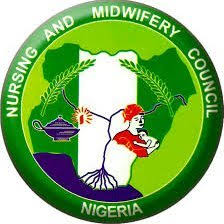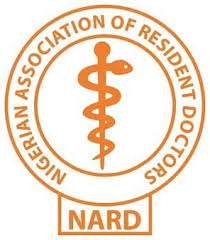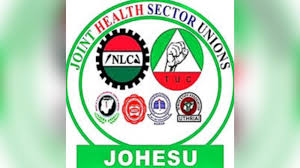College of Nigerian Pathologists Communique at its 13th Annual Scientific Conference and General Meeting
The College of Nigerian Pathologist held her 13th National Scientific Conference and Annual General Meeting at the Nigerian Armed Forces Resettlement Centre Lagos. The Theme of the conference was financing clinical laboratory services for the 21st century: Public private partnership or other models while the sub theme was Recent Advances in Pathology
The opening ceremony was chaired by a foremost medical practitioner, academic and university administrator Professor Tolu Odugbemi, OON, NNOM, Hon. Dsc, D PhD, MD, FAS, DFMC,
Notable medical and academic personalities from all parts of the country were in attendance. These include but not limited to the President of the National Postgraduate Medical College of Nigeria (NPMCN) Prof da-Lilly Tariah and the President of the Nigerian Medical Association Professor Francis f aduyile, Prof John Obafunwa former Vice Chancellor Lagos State University, Professor Victor Wakwe former President NPMCN, Dr Faye Abbiyesuku Chairman Faculty of Pathology NPMCN, Prof GO ibegbulem immediate past Secretary Faculty of Laboratory Medicine West African College of Physicians Nigeria Chapter and Prot PO Olatunji Vice Chairman Africa Society for Blood Transfusion (ECOWAS) and Chairman Excellence Award Selection Committee. Highlight of activities included oral presentations of scientific works, workshops and special plenary sessions. Special presentations were made by Major General Tilewa Amusu (nd): Professor Oyinlola Oduyebo; Professors Yinka Akande, M. S. Shehu, and Professor Oyewale Tomori 00N, on critical issues pertaining to the speciality of pathology in Nigeria.
The guest lecture on the theme was delivered by Mrs Clare Omatseye, MD/CEO JNCI Ltd.
The high point of the opening ceremony was the official declaration and unveiling of change of name from Association of Pathologists of Nigeria (ASSOPON) to College of Nigerian Pathologists (CNP) by Dr Kenneth C lregbu, President CNP.
The Conference also featured Excellence Awards to four (4) eminent pathologists in recognition of their enormous contributions to the field of Pathology, Practice of Medicine, public service and humanity in general. These were Professor Tolu Odugbemi 00N, NNOM, a foremost Medical Microbiologist; Professor Aba Omotunde Sagoe IOW, a foremost Haematologist and Blood Transfusionist; Professor Olumuyiwa Adebayo Afonja, a foremost Chemical Pathologist; and Professor Williams Olufemi Odesanmi, a foremost Anatomic Pathologist and forensic Expert
2. OBSERVATIONS AND RESOLUTIONS
Following exhaustive deliberations at the Annual General Meeting, the following observations and resolutions were made:
2.1: Pathology ResidencyTraining:
2.1.1 The meeting noted with sadness the fast dwindling number of residents in training, especially in pathology, due to refusal or reluctance of hospital managements to fill the numerous existing vacancies for Pathology Residency Training In almost all the accredited institutions in Nigeria with the Pathology disciplines worst affected. This has led to unimaginable frustrations in these disappointed young doctors. Nigeria has about 500 practising pathologists serving a population of about 200 million translating to a ratio of about one pathologist to 400,000 persons as against the standard of one pathologist to 20,000 persons. This ratio of pathologists to population is less than 10% of that in the United States and United Kingdom, and estimates show that at the current rate of education and training in sub-Saharan Africa, including Nigeria, it could take up to 500 years for the number of pathologists per 1000 population to reach that of US or UK.
The CNP calls on the Federal Ministry of Health to as a matter of urgent national importance direct all accredited hospitals to immediately fill all vacant residency positions, especially in pathology.
2.2: 21' Century Brain Drain:
2.2.1 CNP observes the high rate of emigration of doctors of all cadres to other climes for greener pastures, following frustrations of unemployment in spite of numerous vacancies, lack of necessary working tools, excess workload and exhaustion, poor and unregulated work environment, and poor professional/career fulfilment . The College further notes that the nation's health and medical education systems are at great risk of collapse if nothing is done now. It therefore appeals to government at various levels to absorb the roaming population of medical personnel into the care system to avert an imminent collapse, while at the same time providing enabling environment to optimal productivity.
2.3: Poor State of Clinical Laboratories
2.3.1 Tne nation's clinical laboratory system remains embarrassingly sub•optimal in performance due to lack of re-training of staff, absence of quality systems and practice, obsolete and dysfunctional infrastructure and equipment and the lack of political will to do what Is right to align our clinical laboratory practices with global standards.
CNP calls on governments across the nation to give the clinical laboratories the deserved attention as the information generating unit of the hospitals for evidence-based practice. Staff re-training in a highly dynamic practice must be made a priority in addition to provision of modern equipment and infrastructure.
2.4: Public Private Partnership (PPP) model of Healthcare financing
2.4.1 The seeming reluctance of hospital managements to embrace public private partnership in running the clinical laboratories despite its adoption as a program of government approved by the National Council of Health since 2005 remains inexplicable. More so, the College regrets that despite a most widely held proof that a well structured PPP is the reasonable way to upgrade the quality of equipment, infrastructure and quality of services in our clinical laboratories and health care, generally, this program is yet to gain serious recognition and implementation.
CNP calls on with government and manager s of public health institutions to realistically embrace PPP as a viable option to reversing the decay in infrastructure and equipment. It further calls on government to remove every obstacle hindering the smooth and effective implementation of PPP
2.5 Service areas Revolving Funds in Hospitals
2.5.1 The meeting bemoaned the failure and or refusal of many hospital managements to operate full and autonomous revolving funds in their establishments, which historically have been found to have helped to deal with issues of delayed or sub-optimal care due to out-of-stock, delayed payment of suppliers, high cost of purchases and supply of sub-standard reagents and drugs especially In the clinical laboratories and pharmacies; and lower costs of services and improved care. It further observed that whereas purchase of reagents and consumables can be part of PPP, revolving fund ensures that basic reagents and consumables are available to at least carryout essential tests that do not require state of the-art equipment.
2.5.2 CNP calls on governments to direct the establishment of full and truly revolving funds where desirable to enhance service delivery especially in clinical laboratories, pharmacies and radiology while increasing funding to health institutions to minimise interference in the administration of Revolving funds. Medicalworldnigeria.com
2.6: The Law Courts and Clinical Laboratory Practice
2.6.1 The meeting noted the outcome of some activities in the various courts at different levels and resolved to advise the persons concerned to put the interest of our patents above all other considerations, noting that the structures and operations of health systems generally and the clinical laboratories are peculiar, and may not be altered without devastating consequences to patients and society. The meeting further observed that at the centre of health care are the lives of citizens, and as such every measure must be taken to safeguard such at all times to avoid the slightest Injury or any avoidable death. It called on all pathologists across the country to practice within the confines of professional codes of conduct and operational guidelines as clearly defined in the relevant documents of the Medical and Council of Nigeria, and in line with international best practices. It warned that the health system, particularly the hospitals and clinics, is not the place for unnecessary self aggrandizement, inordinate and life-threatening autonomy and experimentation on the lives of people, noting that the consequences of the seeming intractable and self-serving search for definition of roles and assignment of duties and responsibilities between doctors and other health professionals remains a looming disaster waiting to befall the nation. The CNP calls on government to implement the recommendations in the Yayale Ahmed Committee report and put an end to the multiplicity of lawsuits in courts including but not limited to professional job evaluation, role delineation and establishment of clear lines of authority or organogram according to international best practices obtainable In nations with high performing health systems. The CNP, convinced that core medical professional role designation and administration are not issues for legal determination but prerogative of the employer informed from global best practices, advised medical laboratory scientists who are still in courts to return and perform their traditional roles in the clinical laboratories as obtainable in other climes.
2.7:Private Practice and the Law
2.7.1 Many government employed doctors and other health care practitioners who engage in private practice are al breach of the extant provisions of the constitution of the Federal Republic of Nigeria 1999(as amended). Such practice is inimical to the development and progress of the public health care system. The CNP therefore, calls on government to be bold and courageous enough to deal with the issue of conflicts of interest by government-employed doctors and other health personnel engaged in private practice. The constitution has enough provisions to deal with the matter satisfactorily.
2.8: Contributions of all Clinical Laboratory Professionals and Staff
2.8.1 The CNP appreciates the contributions of all clinical laboratory professionals and staff (medical scientists, clinical scientists, medical laboratory scientists, research scientists, scientific officers, laboratory assistants technicians etc) in sustaining some levels of activity despite the shortcomings in the system, and noted with satisfaction that where peace and order have been allowed to prevail, substantial progress have been recorded as exemplified in the private sector, where everyone is satisfied playing his/her traditional roles and responsibilities with no ploy to subvert or supplant theother. CNP calls on all these staff and professionals to up their game by getting familiar with and embracing quality management system approach in the operation of the clinical laboratories. It urged them to keep abreast with recent events in their practice and regularly engage in continuing professional development to remain relevant at any time.
2.9: Prevalence of Dubious Laboratory Results, Medical Quackery and Absence of Clinical Governance of Clinical Laboratories in Nigeria
2.9.1 The CNP notes with dismay the unacceptable prevalence of dubious clinical (medical) laboratory results/reports being handed over to unsuspecting and ignorant patients, creating in many instances a false epidemic of 'malaria, typhoid, hepatitis and Staphylococcus infections. These contribute largely to the dismal health indices in Nigeria due to absence of clinical governance in majority of the clinical laboratories producing these laboratory reports both in private and public health institutions. CNP heartily welcomes and commends the efforts of the Nigerian Medical Association (NMA) in addressing medical quackery. To this end, we support the stance of the NMA and the Federal Ministry of Health's (Wolf's) circular (Reference Number: 011S/400/T/85) dated 22-. February 7018 mandating the authentication of medicalcorrespondenceswith the Doctors' Stamp.
2.9.2 CNP therefore resolved to direct all her members to similarly authenticate all clinical laboratory reports issued or authorised by them. In addition CNP calls on the Medical and Dental Council of Nigeria (MDCN) and the Medical Laboratory Science Council of Nigeria (MLSCN) to closely monitor activities in private laboratories owned and or managed by their respective members. The CNP further resolved to assist the Federal Ministry of Health and States lacking pathologists, if any, in monitoring these facilities
2.10: National Health Policy Direction and the Effect of Overarching Agenda of Foreign Funders/ Development Partners
2.10.1 The meeting observed a rather very disappointing and unethical practice being displayed by some foreign funders and and/or Development partners and their local allies in the health space which tend to jettision country goals, objectives and health system practices rooted in our cultrure, values, beliefs, ethics and history but over-ridden by donor-interests which focus on extracting useful health data for the development of other climes, or NGOs seeking to play to the gallery to attract more funding from bodies. Despite the huge amounts claimed to have been spent by donor agencies there is hardly any enduring legacy left behind, especially in the area of clinical laboratory practice. CNP calls on the Federal Government to speedily sort out the gross underfunding of the Health Sector and streamline the programmes of the many development partners/foreign donor agencies to align with country's goals, aspirations and priorities. It further appeals to the responsible ministries of health to coordinate strictly donor funded programs to avoid any violation of legislations or policies at any level.
2.11: National Laboratory Technica I Working Group
2.11.1 CNP noted with regret and sadness the situation in which appointments into committees and working groups on laboratory matters are based mainly on local arms of foreign organisations rather than on notable national experts in such disciplines. It particularly noted the representations in the National Laboratory Technical Working Group (NLTWG) where over 80% of the about 30 members are composed of medical laboratory scientists representing the development partners who from all indication seem now to call the shots in our health system, skewing policies and actions to favour their pre-determined agenda, and in many cases running contrary to our tested and functional systems as well as instigating and sustaining crisis. The CNP calls for the immediate dissolution and reconstitution of the NLTWG with a view to ensuring that all professionals in clinical laboratory practice are adequately and fairly represented. The development partners cannot take the place of national experts in national affairs.
2.12: Medical and Dental Council of Nigeria (MDCN)
2.12.1 CNP noted with great relief, the inauguration of the Governing Board of the Medical and Dental Council of Nigeria (MDCN) after its dissolution in 2015. The Medical and Dental Practitioners' Act, CAP M8 LFN 2004, provides that only the Chairman of the Council shall preside over the Tribunal (which has the status of a high court). Part of the statutory regulatory functions of MDCN is the regulation of clinical laboratory practice. CNP believes that the fight against quackery and other unwholesome practices, will receive a new impetus, and will further guarantee the quality of medical care and the safety of patents and general populace.
2.12.2 CNP resolved and restates her support to the MDCN in combating all forms of quackery and especially as regards clinical laboratory practice and to strengthen the practice of the profession of Pathology to enviable heights.
2.13: International Pathology Day
CNP noted with satisfaction the commendable marking of the 2018 international Pathology Day by State branches of the College of Nigerian Pathologists, pathologists and friends of pathology. CNP greatly welcomes this initiative. The International Pathology Day was marked globally, entrenching in minds the great role pathology plays in being the science behind the cure of Medicine and safeguarding the health of the populace. The meeting calls for sustained improvement towards creating awareness of the place of Pathology in healthcare and role of pathologists in the healthcare team
3. Appreciation
The CNP wishes to express its deep appreciation to the Commandant of the Nigerian Armed Forces Resettlement Centre, Air Vice Marshal S. l iman mni, for allowing us the use of his facilities and providing an ambient environment for the event and for being physically present. We also appreciate Major General (Dr) OA Ogunbiyi(rtd), mni who chaired the Dinner/Award night. Our thanks also go to Prof da-Lilly Tariah, President of the National Postgraduate Medical College of Nigeria for honouring our invitation, Mrs Care Omotseye, MD/CEO MCI ltd, who was our guest lecturer and to Prof ToluOdugbemi who chaired the opening ceremony. We thank all our awardees for being physically present with their families and friends to receive the awards. We appreciate our members for attending the meeting in their numbers and for the great scientific papers presented at the event. We are grateful to our friends in the media for giving wide publicity to the event. Our immense gratitude goes to our sponsors and to all those who contributed financially and materially towards the successful organization and hosting of their National Conference and Annual General Meeting of CNP Lastly but not the least we doff our caps for the Local Organising Committee led by Dr Babafemi Thomas and the Lagos State Chapter of CNP ably led by Prof Fatima Abdulkareem fora great organisation of the conference. We wish to re-assure all our colleagues in the medical profession and indeed all Nigerians that CNP remains firmly resolved to focus on the development of the health sector by defending and promoting professionalism and international best practices in clinical laboratory practice in Nigeria.
4. 2019 Conference
The 2019 conference will hold in Benin, the Edo State capital in the month of November. Plans for the conference have commenced and intending sponsors should contact Prof Nose Bansaye of the Department of Haematology and Blood Transfusion, University of Benin Teaching Hospital, Benin-City.
God bless College of Nigerian Pathologists
God bless Nigeria Medical Association
God bless Nigeria




